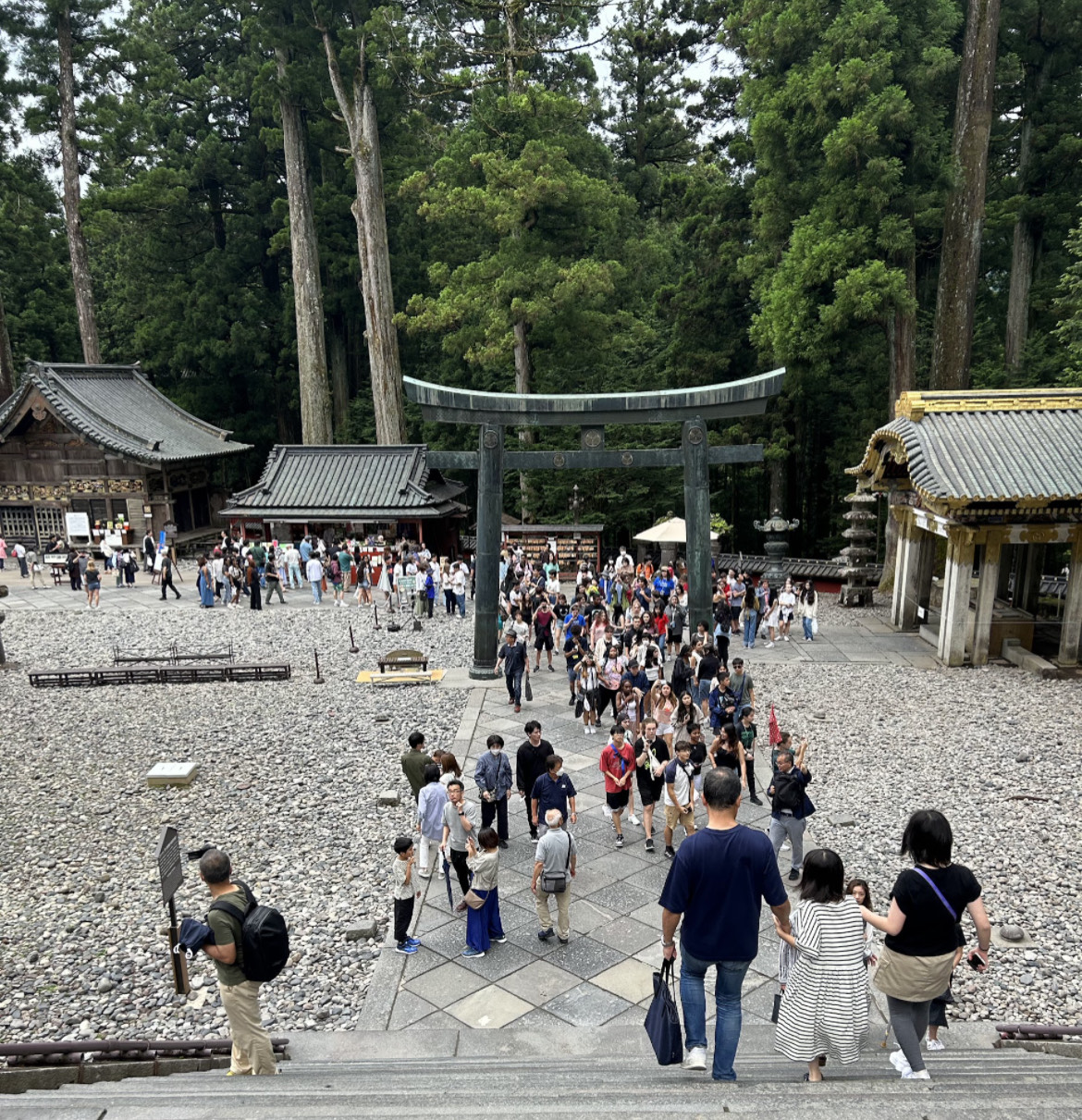Have you ever felt like you’re stuck living under a rock, yearning to learn more about other cultures but not knowing how? I found that studying abroad is a great way to expand your worldview. It allows you to truly immerse yourself in lifestyles that are so different from your own–or more similar than you might think.
Below are five benefits of studying abroad that were incredibly influential to me this summer. I lived in Japan for 28 days to study Japanese. This experience was life-changing for me, and was definitely one of the best decisions I’ve ever made.
1. Meet Amazing New People
“Studying abroad” may seem like just doing school in another country, but it is so much more than that. My favorite part of the trip was – as cliche as this sounds – the friends I made there. I was lucky enough to find a group of absolutely amazing people whom I connected with pretty quickly, and I still talk to them to this day. In fact, I recently drove six hours to Kentucky and back to visit one of my friends that I met in Japan, and it was so much fun. If you ever get the chance to study abroad, I highly recommend trying to make friends; I promise it’ll be the most memorable part of your whole trip. (Trust me: all I ever talk about is how much fun I had with my friends there.)
2. Broaden Your Cultural Perspectives
Living in a different country for a month, one that doesn’t speak English nor conform to Western ideals, was quite the culture-shock for me. I lived with a host family for two of the weeks that I was in Japan, and they helped me to better understand and embrace their culture. I learned what to do and what to avoid, learned how to navigate around a foreign country, and even learned how to cook a signature Japanese dish: オムアイス (omurice). Try not to stay in hotels when studying abroad; host families will allow you to meet new people and learn more about the culture through direct cultural immersion.
3. Experience New Teaching Styles
The schooling I experienced in Japan, though not the traditional Japanese high school, was so enlightening for me. We were all put into a school specifically aimed toward people who want to learn Japanese as English speakers. What was most beneficial for me was how interactive the classes were, as they incorporated all of the different learning styles: visual, auditory, reading/writing, and kinaesthetic (physical activities). This was especially great for me, because I feel like most teachers in America focus on reading/writing and auditory teaching, which isn’t always what works best for me. We also had a different teacher every day – they rotated between all the classrooms – and were allotted specific times during our three hour classes where we could run down to the コンビニ (convenience store) and buy snacks to help us get through the remainder of class.
4. Learn New Languages
Studying abroad is an excellent way to learn a new language. Being immersed in your target language is incredibly beneficial, but you won’t learn by just using Google Translate to get by – it’s important to really make an effort to speak the language to the best of your ability, attempt to strengthen your reading and writing skills, and don’t be afraid to make mistakes. I can’t even count how many times I mixed up a word or misunderstood what someone told me in Japanese, but it made for a funny story with my host family and friends. It’s also so imperative to maintain your language skills as best as possible after studying abroad: I can already tell that I’ve lost a little bit of what I’ve learned since being back, so do what you can to retain your knowledge! Duolingo and other language learning apps are a good starting point.
5. Strengthen Your Independence
I was nervous about traveling by myself to a foreign country that doesn’t speak English, but it really forced me to be independent. Personally, I have a terrible sense of direction, and I had to commute over an hour alone from school to my host family’s house every day. As you can imagine, I was forced to figure things out pretty quickly. I got lost quite a few times – but I always found my way home in the end. It helped that the Japanese train system is very efficient and relatively easy to navigate, but even just asking a stranger for directions was so helpful. I know it can be scary, especially if you don’t know the language, but I promise it will get easier with practice. By the end of my stay in Japan, I was able to find my way around Japan’s train stations with ease, and I never feared getting lost because I knew I could rely on myself (plus, Japan is a pretty safe country, and the people there are almost always willing to help).
Study Abroad Organizations
Below are some organizations that you can use to find good study abroad programs to look into. There are so many more than what I have listed, so find which program sounds best for you!
CIEE – This is the study abroad organization that I went through
Global Leadership Adventures – Study abroad and travel internships for teens aged 14-18
NOLS – Travel opportunities for both teens and adults
AIFS – Study abroad during the summer
AIFS College – Study abroad during college
CEA CAPA – Study abroad and internship opportunities






